コレクション e major scale guitar neck 137722-E major scale guitar neck
One of the best things about playing the guitar is the ability to move shapes (eg barre chords, power chords, scales) and patterns around the neck with ease Movable shapes and scale patterns can allow you to play in any key by applying the same fingering pattern to a different root noteE Major Key Signature The accidentals for the key of E guitar notes are F# – C# – G# – D# Tablature Here is an example of the key of E guitar notes written in guitar tablature including the Treble Clef Click to Expand Key of E Guitar Tab How to Memorize the Key of E Guitar Notes Just looking at the messy diagram above, it comes asGuitar neck This guitar neck shows the notes of the major scale Shapes These CAGED scale patterns help you learn the major scale as it relates to standard CAGED chords For instance, Pattern 1 will correspond to a C chord Pattern 1 play notes Pattern 2 play notes Pattern 3 play notes Pattern 4
Guthrie Govan S String Bending Masterclass Part 2 Seven Note Scale Bends Musicradar
E major scale guitar neck
E major scale guitar neck-Major Scales for Classical Guitar (PDF) – Beginner to Intermediate Classical GuitarPDF includes notation, TAB, fingering, some diagrams, tips, and more 32 pages 19 Edition Includes Common open and closed scale patterns up to four sharps or flats, two octaves (some three octaves), and examples of open string shiftsAlso includes the five closed major scale patterns over the entireLearn the Major Scale on Guitar A scale is a sequence of notes in ascending or descending order A major scale (also known as the Ionian mode) is made up of seven notes eight if you count a higher version of its first (or "root") note to complete the octave The major scale is at the heart of most popular music



E Major Scale Note Information And Scale Diagrams For Guitarists
The major scale is the mother of all scales and your reference point for all other scales That's why it's so important to master all of these five scale shapes The five CAGED scale shapes (C shape, A shape, G shape, E shape and D shape) surround the entire fretboard The "shapes" are sometimes also referred to as "positions"Here are some other keys you can easily play the major scale in, as well as their starting fret positions C 8th Fret A 5th Fret E 12th Fret D 10th Fret Guitar Scales Chart The Minor Scale This next scale comes directly from the major scale If we were to analyze this scale with the DoReMi chart above, our order of notes would lookEach of the other patterns correlates with a scale step in the key of C major, so the pattern that begins with the open low E string is actually "Pattern Three," because it begins on E, the third step in the C major scale For more on the scale numbering system, see tip #2 in 101 Guitar Tips
A 6th is an interval a specific musical distance between two notes 6ths, like 3rds, sound particularly good because of how they harmonise with chords Let's first establish a starting point Below I'm in the open E major position If we isolate the notes on the 3rd and 5th strings, we can use this string pairing as our first sixth voicingOctober 2, by @dmin Prev Next You can play these same patterns in any key by sliding them up and down the neck You can also divvy these patterns up in different ways – just trying to keep it simple Pick, say, a pattern a month (or 3) and learn it wellLearn how to play the E Major scale on bass guitar with our free tab, sheet music, neck diagrams, and more Bass Guitar Scales A Major Amaj7 B B Major C# C# Minor C#min7 D# D# Diminished D#m7b5 Neck Diagram with Pitches Neck Diagram with Scale Degrees Tablature Pattern 1 Pattern 2 Pattern 3 Pattern 4 Pattern 5 Pattern
The Major Scale on Guitar A StepbyStep Approach To Play The Major Scale Along All The Neck In this tutorial, we're going to study the very foundation of music the Major ScaleIts sound is sculpted in our brains since preschool, and for a reasonHere are some other keys you can easily play the major scale in, as well as their starting fret positions C 8th Fret A 5th Fret E 12th Fret D 10th Fret Guitar Scales Chart The Minor Scale This next scale comes directly from the major scale If we were to analyze this scale with the DoReMi chart above, our order of notes would look like thisNote In this lesson you will learn oneoctave major scale shapes across the entire guitar neck that will help you understand and own the entire major scale landscape Starting from the Root Note We're learning the three major scale shape/patterns with the first (root) note starting on the Low Estring (6th string), Astring (5th string), D


Major Scale Guitar Scales
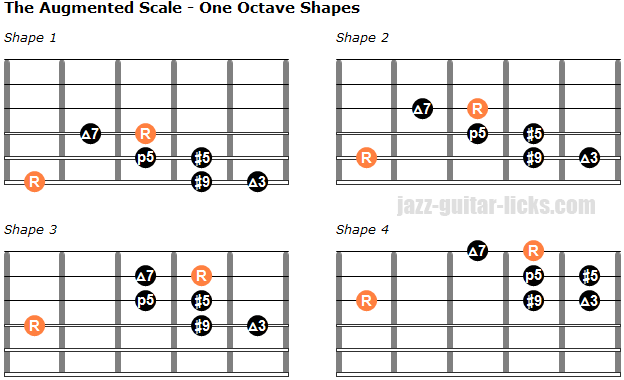


The Augmented Scale Guitar Lesson With Positions And Licks
The problem is that this is not a major scale It is actually the Lydian Mode To make it a major scale, we need to fix the intervals with accidentals In this case, the interval between A and B is a half step instead of a whole step Therefore, we need to flat the B to make it a half step Now you have FGACDE, the F Major ScaleHere are some other keys you can easily play the major scale in, as well as their starting fret positions C 8th Fret A 5th Fret E 12th Fret D 10th Fret Guitar Scales Chart The Minor Scale This next scale comes directly from the major scale If we were to analyze this scale with the DoReMi chart above, our order of notes would look like thisThe E major scale, like all major scales, is heptatonic, which means that it contains seven notes before repeating again at the octave The notes in a E major scale are E, F#, G#, A, B, C#, D#, E (Octave) The E major scale contains four sharpened notes F sharp, C sharp, G sharp and D sharp



Understanding Guitar Scales Guitar Scales Explained
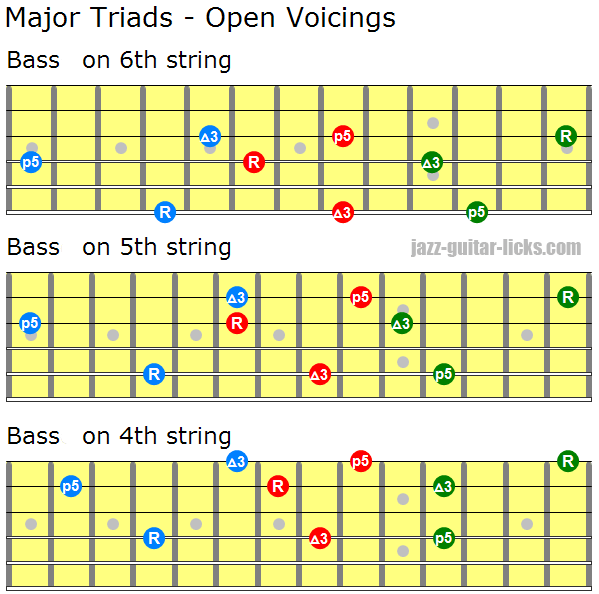


Major Triads Guitar Chord Shapes Close And Open Voicings
Measure 7 contains the change, as well as another sequenced phrase, this time riding the major pentatonic scale (CDFG) and shaped from the linear pattern in FIGURE 2A The V7 chord (D7) marks the end of the first section, whereupon an emotive, Dadd4 arpeggio (DF#GA) tumbles down the fretboard in linear fashionLesson Playing the E Major Scale on Guitar Memorizing scales like the E major scale and various ways to play them, can help expand your knowledge of music theory Developing a stronger foundation in knowing the notes of a given scale can help you play songs you love or aid you in your own songwritingE – F# – G# – A – B – C# – D# The E Major Scale is a great scale to be familiar with on the guitar The lowest note on the guitar (6th string open) is E, so in many ways the note E feels like a sort of 'home' note There are 4 sharps in the E Major Scale F# – G# – C# – D# The relative minor of E Major is C# minor



E Major Pentatonic Scale Guitar Tab Notation Scale Patterns



Want A Guitar Hack Memorise The Guitar Neck With C Major Scale
G Major Scale & E Minor Scale for Guitar – The Whole Neck!Lesson Playing the E Major Scale on Guitar Memorizing scales like the E major scale and various ways to play them, can help expand your knowledge of music theory Developing a stronger foundation in knowing the notes of a given scale can help you play songs you love or aid you in your own songwritingUse them to help you understand the scales' makeup and how they compare to other scales, regardless of key The circled dot in each diagram indicates the tonic or root of



E Major Pentatonic Scale Guitar Tab Notation Scale Patterns



Key Of E Guitar Notes All E Major Notes On Fretboard Graehme Floyd Progressive Guitarist Teacher Composer
The key signature for the key of E guitar notes contains four (4) sharps E Major Key Signature The accidentals for the key of E guitar notes are F# – C# – G# – D# Tablature Here is an example of the key of E guitar notes written in guitar tablature including the Treble Clef Click to Expand Key of E Guitar Tab1) The Full Diatonic Scale If the band tells you that you are in the key of G major, you must be able to solo within the key of G major up and down the neck of the guitar If the band tells you that you are in the key of A minor, you must be able to solo within the key of A minor up and down the neck Fortunately, due to the movable nature of the guitar, once you learn how to solo "upMastering your guitar chords, scales and arpeggios allows for more enjoyable, fluid, better playing for yourself and is the key to playing along with others FretMap's interactive fretboard shows you what notes to play
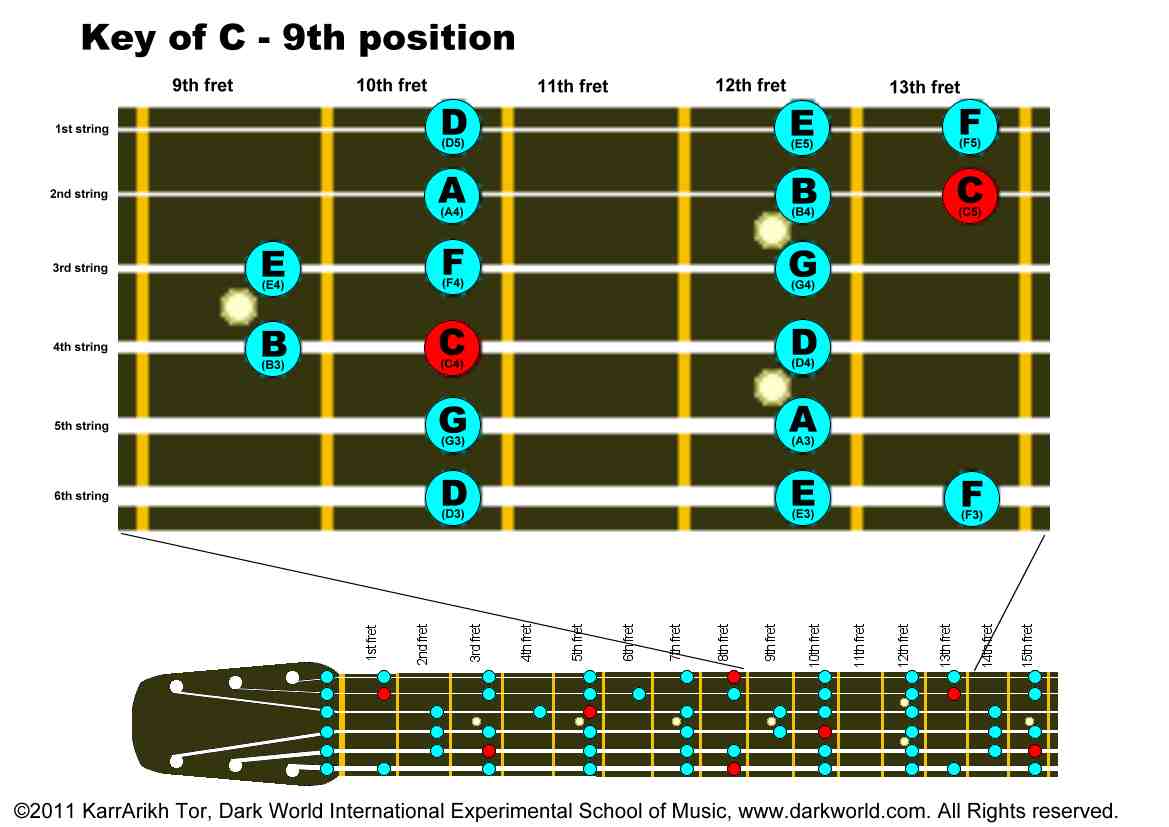


Key Of C Major 9th 10th Fret Position On Guitar



E Major Scale Charts For Guitar And Bass
Major Scale Positions Play Across The Entire Neck In the introductory Major Scale lesson , we learned the basic intervals that build the scale and some basic patterns on the guitar fretboard These patterns are fine for getting to know the scale, but eventually you'll want to free up your soloing and play the Major Scale across the entireIn this lesson we add the left hand Remember, we will use the same right hand picking motions we learned in the previous To add harmonic interest to the exercise we will play notes from the E major scale with the left hand Notice that instead of having to change strings as the melody goes up and down, we simply move up and down the neck staying on the the same set of strings throughoutF Major Scale For Guitar Introduction As is the case with most things on guitar, there are several ways of playing a F major scale Below you'll find TABs and notation for playing 1, 2 and 3 octave F major scales in a variety of fretboard positions and fingerings


E Major Scale For Bass Guitar



Open Position Major Scales For Guitar Cyberfret Com
What follows are diagrams and explanations of how to play a major scale in every position on the neck of the guitar The first position of the major scale, seen above, is the "standard" way of playing the major scale, which most guitarists know If it looks unfamiliar to you, play through itGuitar Neck Scale Diagrams E Major E Major CAGED Scale Fretboard Patterns E Major Scale 3 Notes Per String Fretboard Patterns Pentatonic Scale Fluency available from Amazon Pentatonic Scale Fluency Available on Kindle and Paperback Master the minor pentatonic scale using the whole fretboardGuitar Maps are a unique way to learn and practice E minor guitar scales GuitarMaps are a simple way to develop a better vision of the whole guitar fret board, allowing you to play solos anywhere on the guitar neck Guitar Maps connect E minor guitar scales together so you can play them up the whole guitar neck Guitar scale maps are great with guitar backing tracks in the key of E minor



E Natural Minor Scale Note Information And Scale Diagrams For Guitarists


E Major Pentatonic Scale For Bass Guitar
Mastering your guitar chords, scales and arpeggios allows for more enjoyable, fluid, better playing for yourself and is the key to playing along with others FretMap's interactive fretboard shows you what notes to playHttp//davidlessonscom/egi/blues_rock_soloinghtml FREE video lesson and eBook learn soloing devices, scales, tips, and tricks to dress up your scales aGuitarMaps are a unique way to learn and practice d minor guitar scales GuitarMaps are a simple way to develop a better vision of the whole guitar fret board, allowing you to play solos anywhere on the guitar neck Learning these d minor fret board scale patterns will open up a whole new world when it's time for you to play a guitar leads or solos


Major Scale Positions 7 Positions Of The Major Scale On Guitar
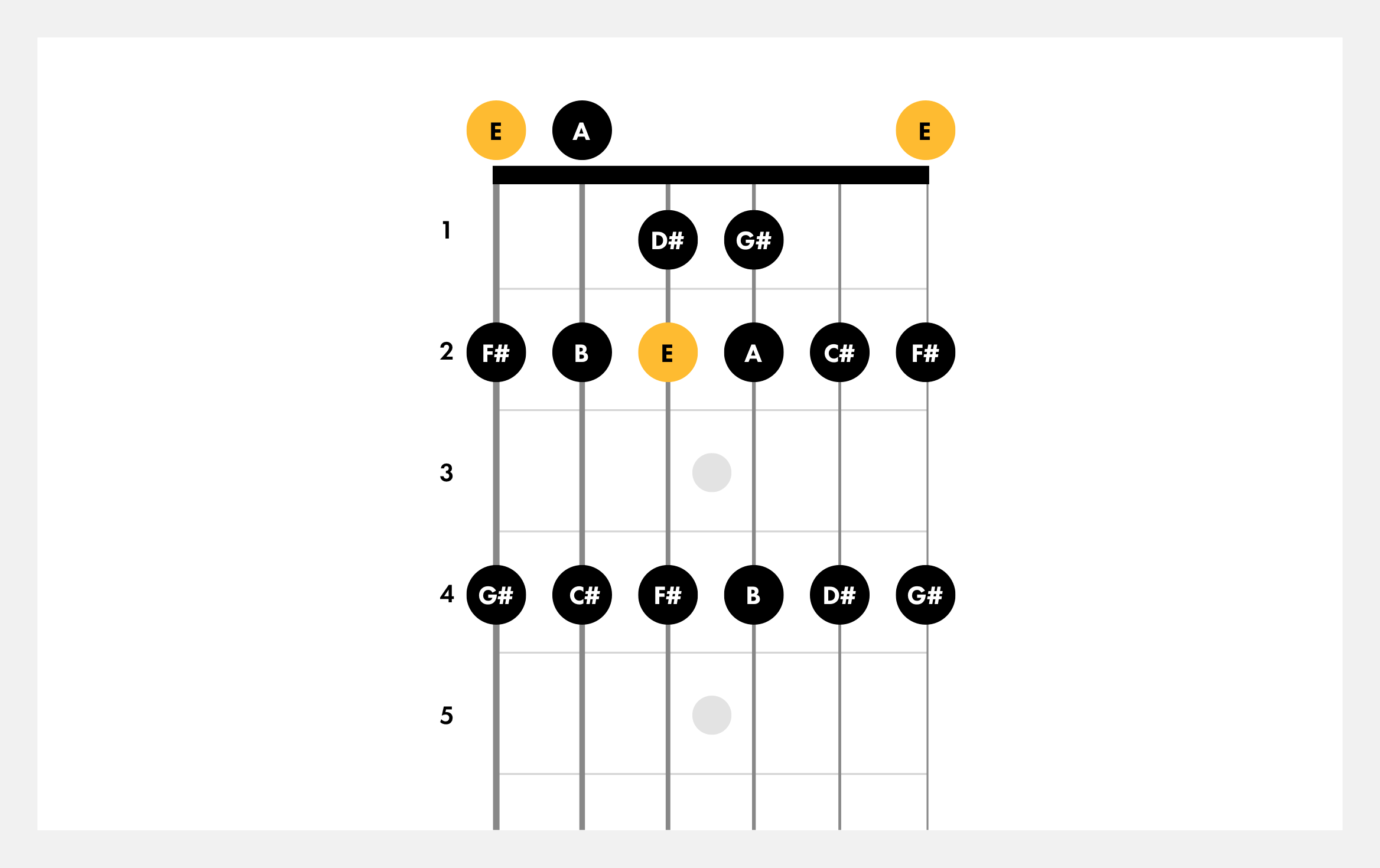


Learn How To Play The E Major Scale On Guitar Fender
Guitar Maps are a unique way to learn and practice E minor guitar scales GuitarMaps are a simple way to develop a better vision of the whole guitar fret board, allowing you to play solos anywhere on the guitar neck Guitar Maps connect E minor guitar scales together so you can play them up the whole guitar neck Guitar scale maps are great with guitar backing tracks in the key of E minorThe major scale Modes like Dorian, Aeolian, and Mixolydian can sound awesome over Blues progressions when utilized properly KEY POINT Keep in mind that at this stage of your lead guitar playing journey there is just no substitute for practicing the right things, learning scales, studying the sounds and relationships between chordsGuitar neck This guitar neck shows the notes of the major scale Shapes These CAGED scale patterns help you learn the major scale as it relates to standard CAGED chords For instance, Pattern 1 will correspond to a C chord Pattern 1 play notes Pattern 2 play notes Pattern 3 play notes Pattern 4



Beginner Guitar Lessons E Major Scale Diagram Constantine Guitars Basic Guitar Lessons Guitar Lessons Major Scale



8 Beautiful E Major Chord Shapes On Guitar And How To Use Them Fingerstyle Guitar Lessons
E minor blues scaleThe E Major Blues Scale contains the following notes E – F# – G – G# – B – C# For a complete lesson on the Major Blues Scale, read this lesson If you already know about the major blues scale and would just like to know how to play it in five positions as well as the open position of E, read onOne of the best things about playing the guitar is the ability to move shapes (eg barre chords, power chords, scales) and patterns around the neck with ease Movable shapes and scale patterns can allow you to play in any key by applying the same fingering pattern to a different root note
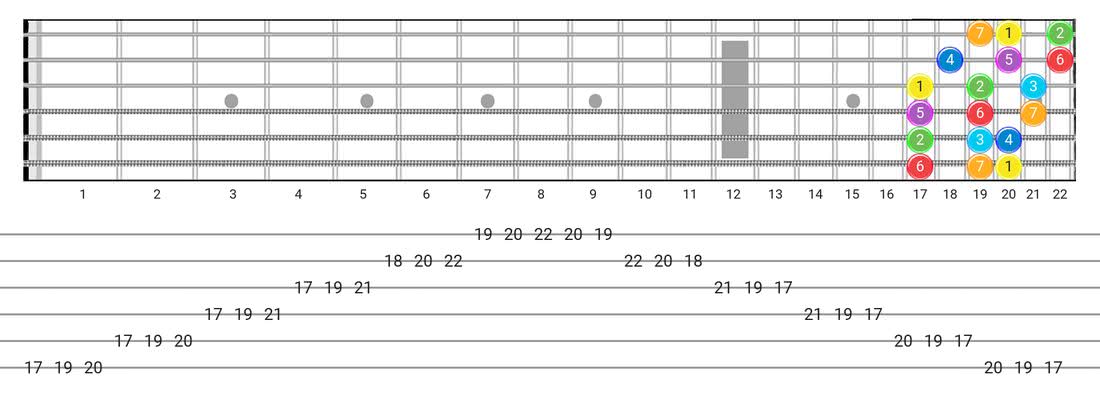


Major Scales On Guitar Fretboard Patterns And Tabs


Playing Scales Across The Fretboard Fast Fluidly Musically
Guitar Scales The following post talks about scales If you really want to learn every major, minor and pentatonic scale for guitar (along with the chordtone arpeggios), you'll want to get my new ebook 'Advanced Guitar Basics Scales and Arpeggios' (click the link for more!)Cool function to write neckwide arpeggios, scales and chords in a breeze You just click on a note and all instances on all octaves will be selected For example you can map all the A major triad positions on the entire fretboard with just 3 clicks, on A, C# and EThe notes of the E Major scale are E, F#, G#, A, B, C# and Eb Play the notes in that order and you have played an E Major scale The guitar neck diagram shows you the big picture for the E Major Scale It shows you all positions of the scale The red dots indicate a root note and the black dots indicate a note in the scale All of the root notes are "E" because this is the E Major Scale
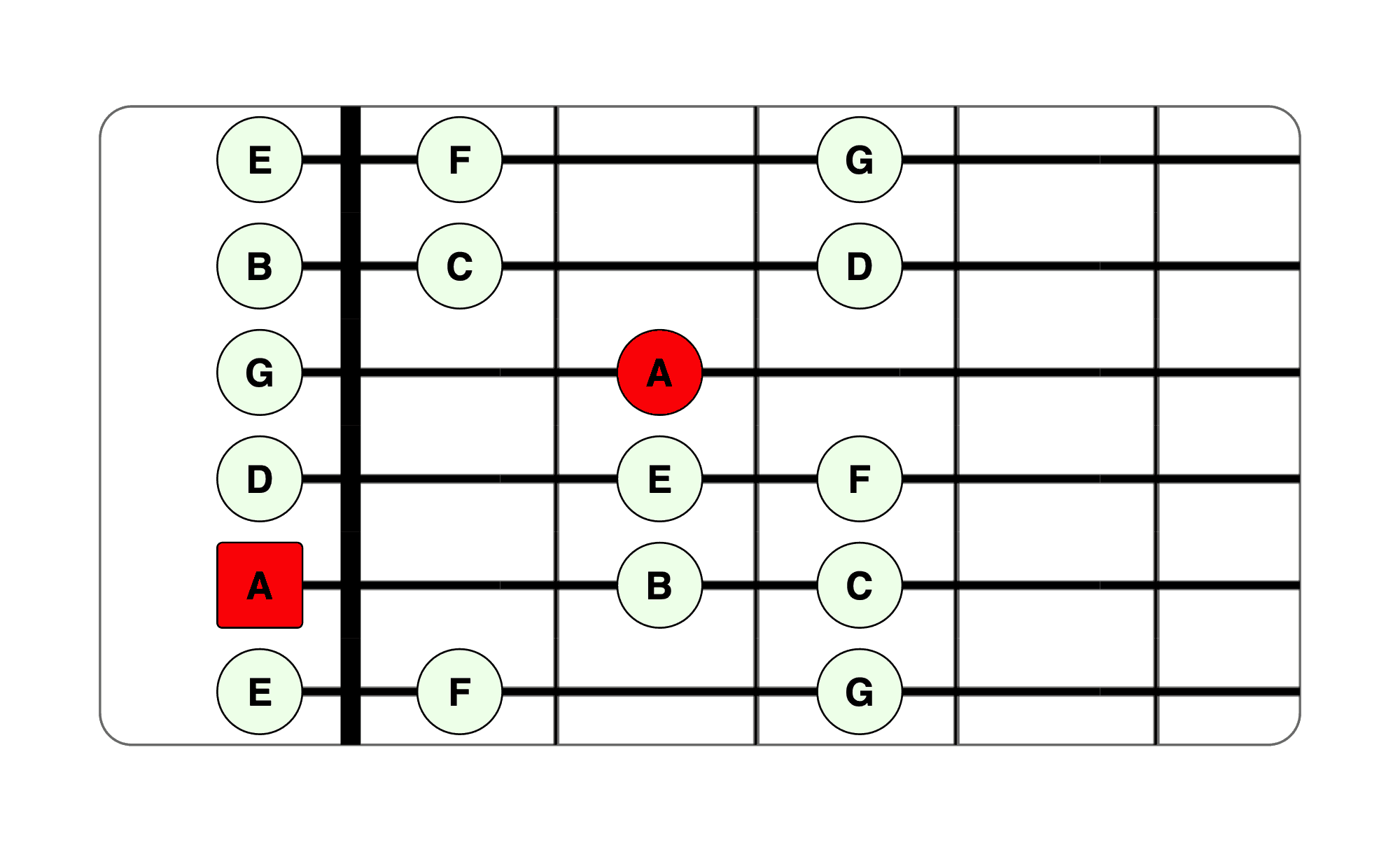


10 Essential Guitar Scales For Beginners Life In 12 Keys



E Minor Pentatonic Scale Free Pentatonic Scales
C Major Scale Guitar Positions Like all major scales, the notes of the C major scale can be grouped to form five distinct patterns or positions across the fretboard These patterns are commonly referred to as CAGED patterns because they're based on the open chord shapes of C, A, G, E, and D chordsMajor Scale Formula Tone – Tone – Semitone – Tone – Tone – Tone – Semitone Using this formula it is very easy to form a major scale on a single string of the guitar For example, in the Key of E major, we would start on an E (say the open position of the first string) and could form the scale as followsThe 14 Most Common and Usable Guitar Scales Printable and Ready to use 1 Printable Guitar Major Scale Chart The guitar major scale is happy upbeat and useful in a variety of styles of music Clicking here and on the image below will open a PDF file of the Guitar Major Scale Chart that prints nicely


Movable Shape In E Major Guitar Scientist



What Are Guitar Scale Patterns Music Practice Theory Stack Exchange
1) The Full Diatonic Scale If the band tells you that you are in the key of G major, you must be able to solo within the key of G major up and down the neck of the guitar If the band tells you that you are in the key of A minor, you must be able to solo within the key of A minor up and down the neck Fortunately, due to the movable nature of the guitar, once you learn how to solo "upLastly, here's a scale pattern that shifts up the entire neck, from fret 1 F on low E to fret 24 bent to the highest F There are two, 3 note pattern played per string and a vertical shift up a string between them The fingering would look like this 124 slide 124, 124 slide 124, 134 slide 123, 123, 1233, 123 bendMajor Scale Positions Play Across The Entire Neck In the introductory Major Scale lesson , we learned the basic intervals that build the scale and some basic patterns on the guitar fretboard These patterns are fine for getting to know the scale, but eventually you'll want to free up your soloing and play the Major Scale across the entire



E Major Scale Fretboard Diagrams Chords Notes And Charts Guitar Gear Finder
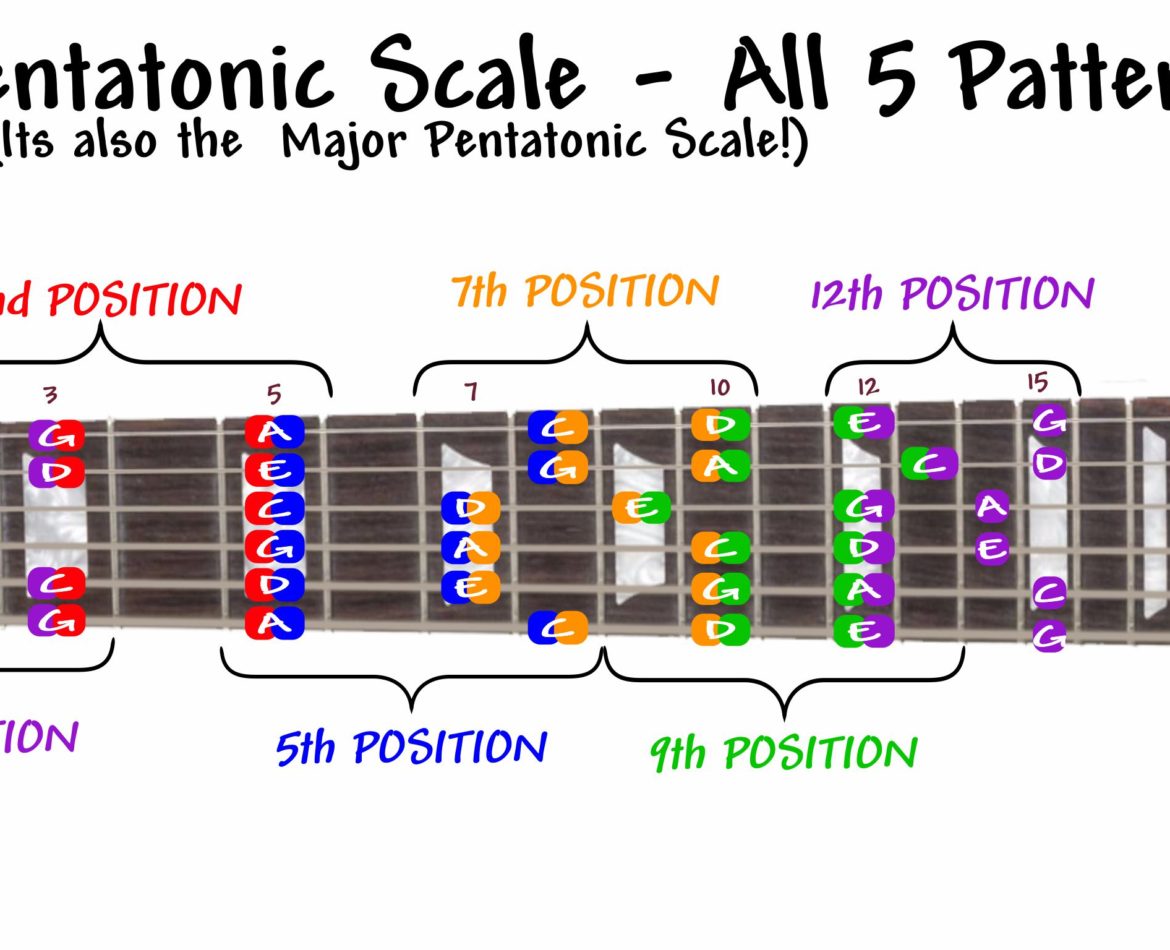


G Major Scale E Minor Scale For Guitar The Whole Neck Bradley Fish
Here's how to play the E Major blues scale in the open position Open Position E Major Blues Scale E Major Blues Scale CAGED Positions Here are the 5 CAGED positions for the E Major blues scale (notes and tabs) 1st Position (lowest fret is 1) 4th Position (lowest fret is 4) 6th Position (lowest fret is 6) 9th Position (lowest fret is 9) 11th Position (lowest fret is 11) Further Reading Scales page;Exercise 1 Harmonizing the E Major Scale Across the Neck A great way to get a feeling of how the chords move through the scale is to play them going up the neck In this example, we use the E Major and go up playing barre chords with the roots on the 6 th string Exercise 2 Harmonizing the C Major Using Open ChordsWhen practicing guitar, use these miniature neck diagrams to remind yourself exactly where to position your lefthand fingers The headings include the scale formulas;
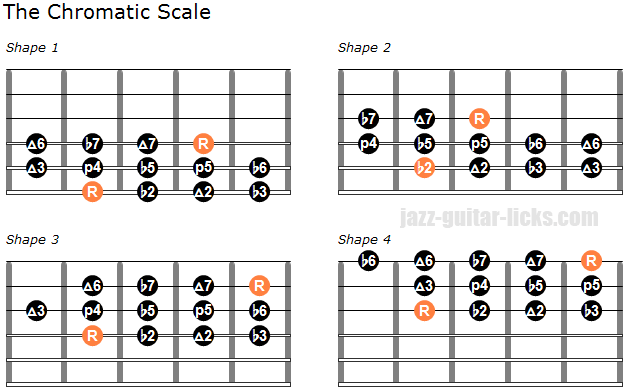


The Chromatic Scale Guitar Lesson With Diagrams Patterns
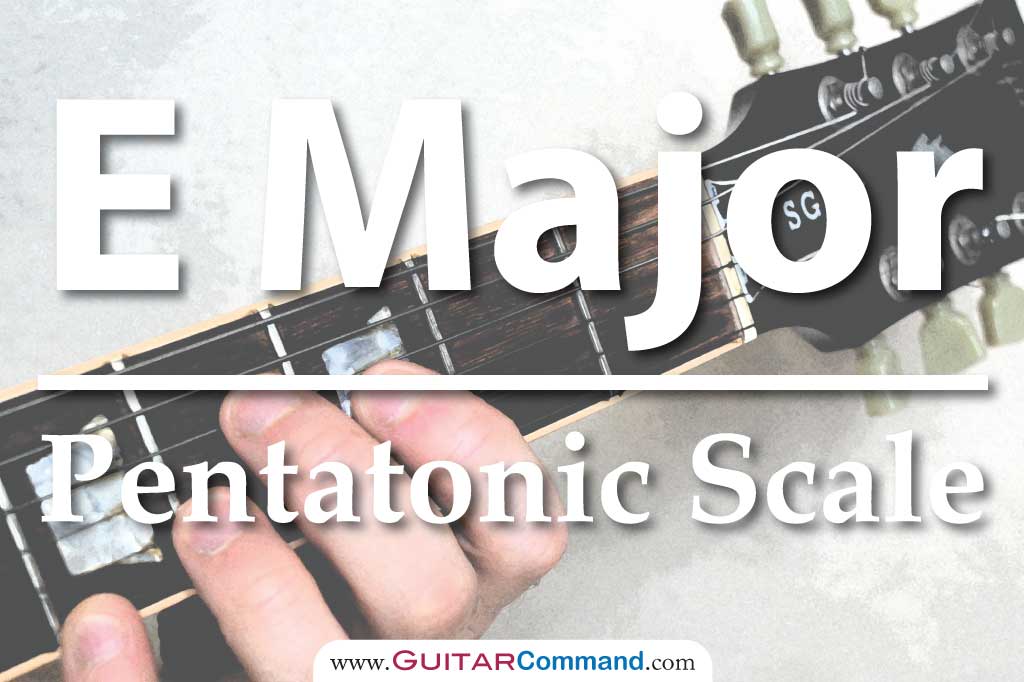


E Major Pentatonic Scale Guitar Tab Notation Scale Patterns
Learn how to play the E Major scale on bass guitar with our free tab, sheet music, neck diagrams, and more Bass Guitar Scales A Major Amaj7 B B Major C# C# Minor C#min7 D# D# Diminished D#m7b5 Neck Diagram with Pitches Neck Diagram with Scale Degrees Tablature Pattern 1 Pattern 2 Pattern 3 Pattern 4 Pattern 5 Pattern



E Major Blues Scale On The Guitar 5 Caged Positions Tabs And Theory



A Major Scale Guitar Notes All A Major Notes On Fretboard Graehme Floyd Progressive Guitarist Teacher Composer
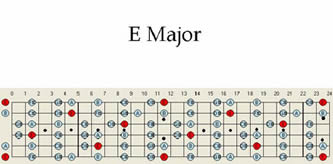


Guitar Maps Scales In The Key Of E Major Pattern



E Major Pentatonic Scale Note Information And Scale Diagrams For Guitarists



E Flat Major Scale E Flat Ionian On The Guitar 5 Caged Positions Tabs And Theory



E Major Scale Charts For Guitar And Bass



E Major Scale Fretboard Diagrams Chords Notes And Charts Guitar Gear Finder



Guitar Major Scales Guitar Music Theory By Desi Serna



How To Play The 5 Positions Of The E Major Pentatonic Scale On The Guitar Guitar E Major Pentatonic Scale Guitar



F Major Scale Free Major Scales



E Major Scale Fretboard Diagrams Chords Notes And Charts Guitar Gear Finder


Playing Scales Across The Fretboard Fast Fluidly Musically



3 Octave Major Scale Modes Scales Modes Strings Of Rage



E Major Pentatonic
:max_bytes(150000):strip_icc()/major_4th_posn-56a461663df78cf772821a4a.gif)


Positions Of The Major Scale Guitar Lesson



Schematic View Guitar Neck Scale Gamma Stock Vector Royalty Free



How To Start Soloing On Guitar Beginner Friendly Guide



E Major Scale On One String Hub Guitar
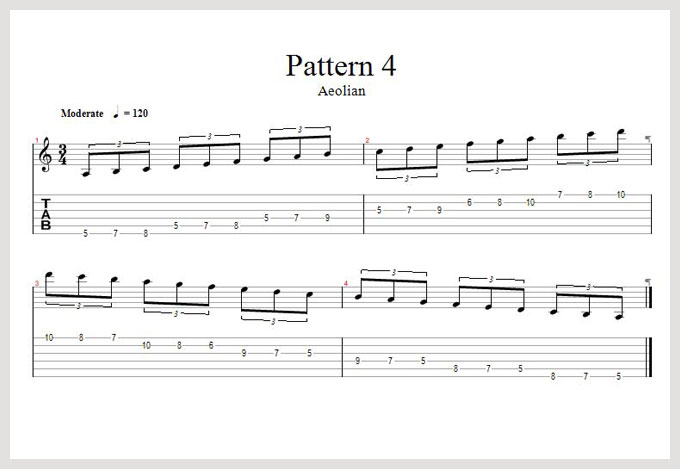


C Major Scale Whole Neck Live4guitar Online Guitar Community



Play A Scale Across The Whole Neck Of The Guitar Music Practice Theory Stack Exchange



Play Guitar Scales Spinditty Music
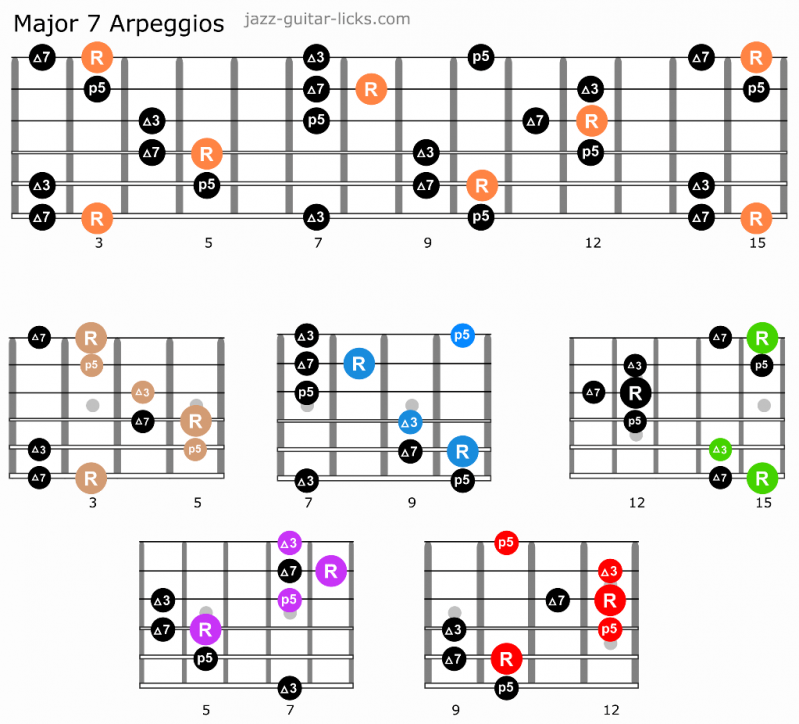


Major Seventh Arpeggios Maj7 Guitar Diagrams And Licks
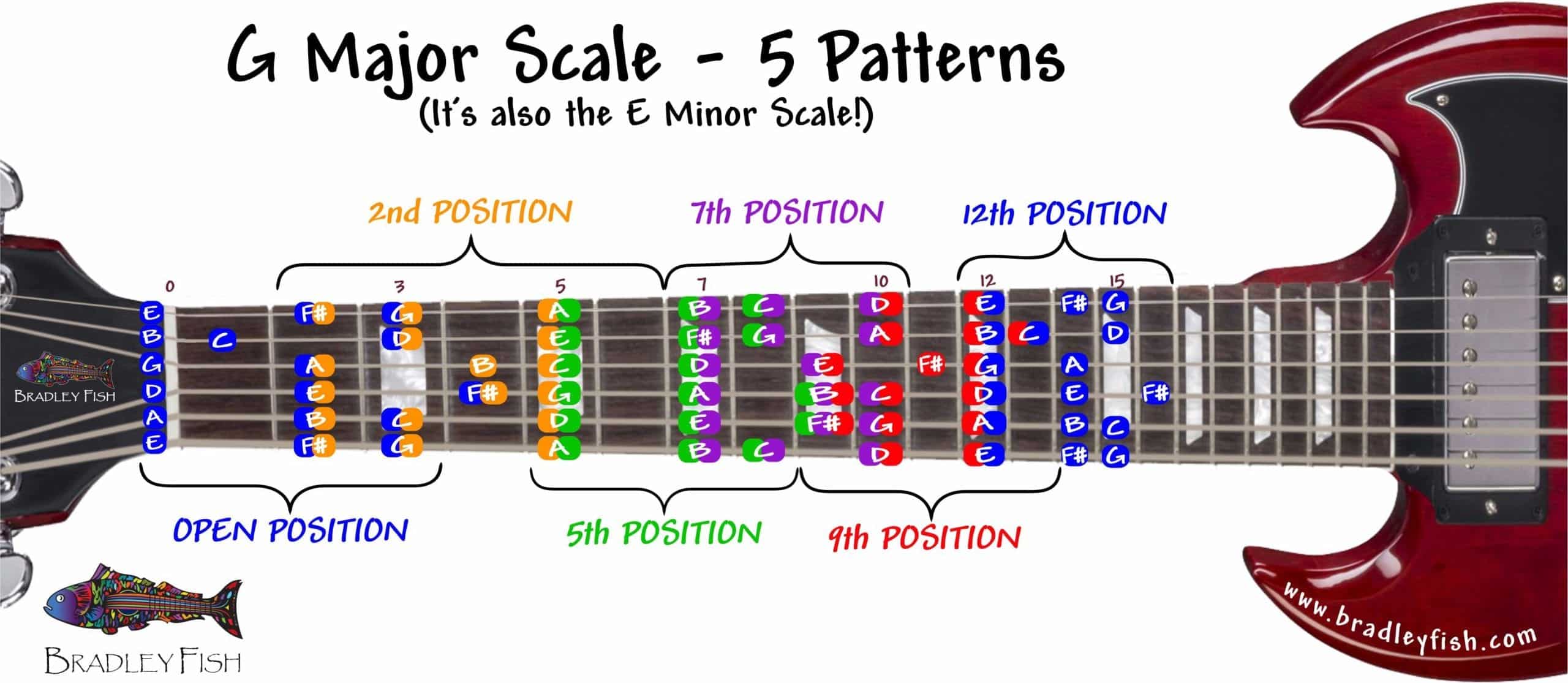


G Major Scale E Minor Scale For Guitar The Whole Neck Bradley Fish



The Major Scale Guitar Lesson World



E Major Scale For Guitar Tab Notation Patterns Lesson Information


A Better Way To Learn The Major Pentatonic Scale On Guitar



E Major Scale On The Guitar Caged Positions Tabs And Theory



The Major Pentatonic Scale Anyone Can Play Guitar
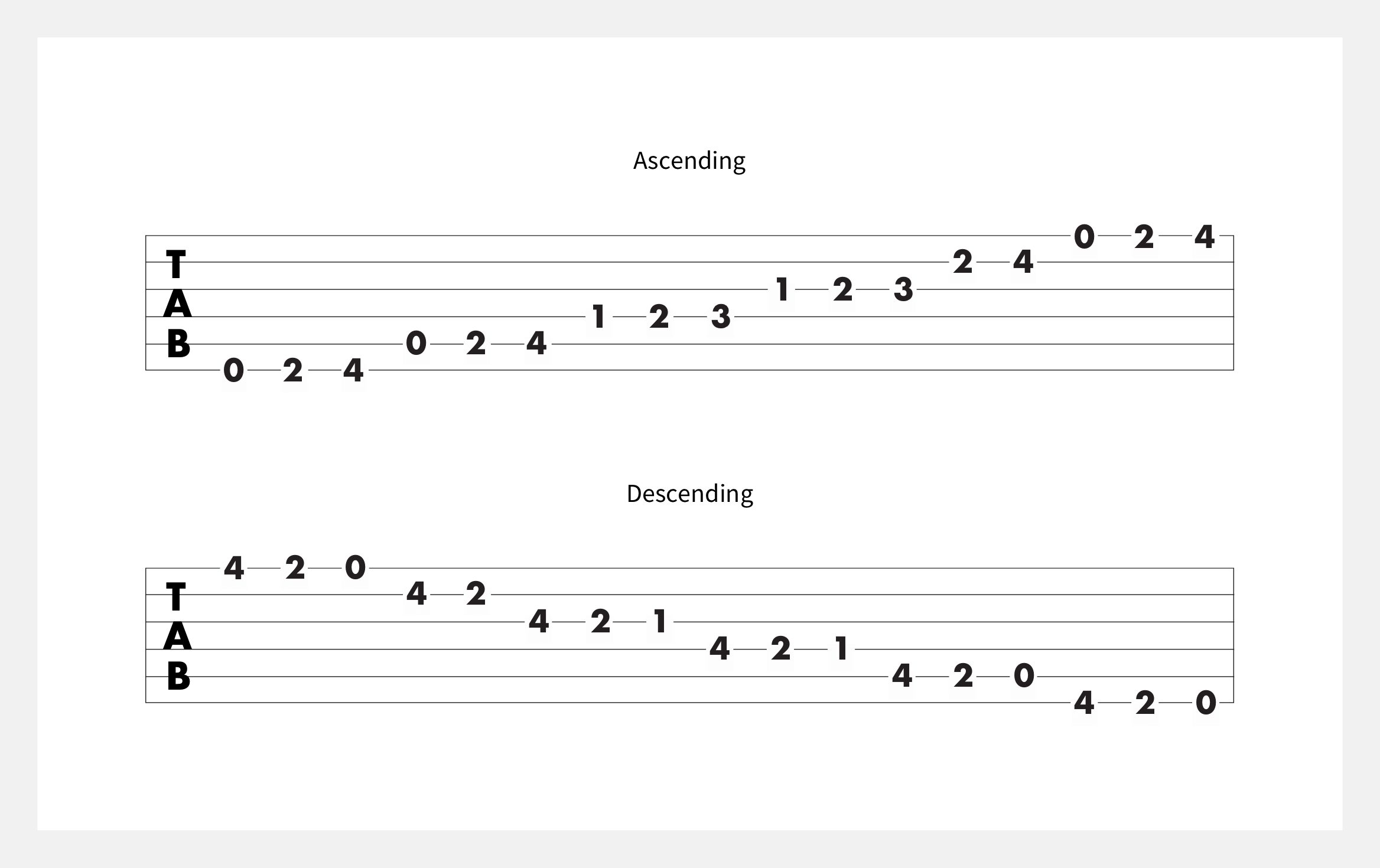


Learn How To Play The E Major Scale On Guitar Fender



E Major Scale Charts For Guitar And Bass



G Major Scale On Guitar Neck Shakal Blog
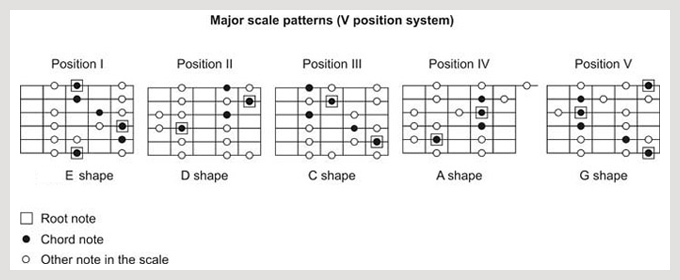


Harmony And Theory Bible Part 3 Major Scale Live4guitar Online Guitar Community


Major 7th Chord Guitar Arpeggio Chart Scale Based Patterns By Jay Skyler



E Major Pentatonic Scale Note Information And Scale Diagrams For Guitarists



3 Easy Ways To Play Pentatonic Scales Up And Down The Neckapplied Guitar Theory



Chart Of The Major Blues Scale On The Guitar Neck These Guitar Fretboard Diagrams Show All 5 Caged System Pa Blues Scale Blues Guitar Lessons Guitar Fretboard


Blues Minor Blues Scale Guitar Patterns Chart Key Of A By Jay Skyler


1
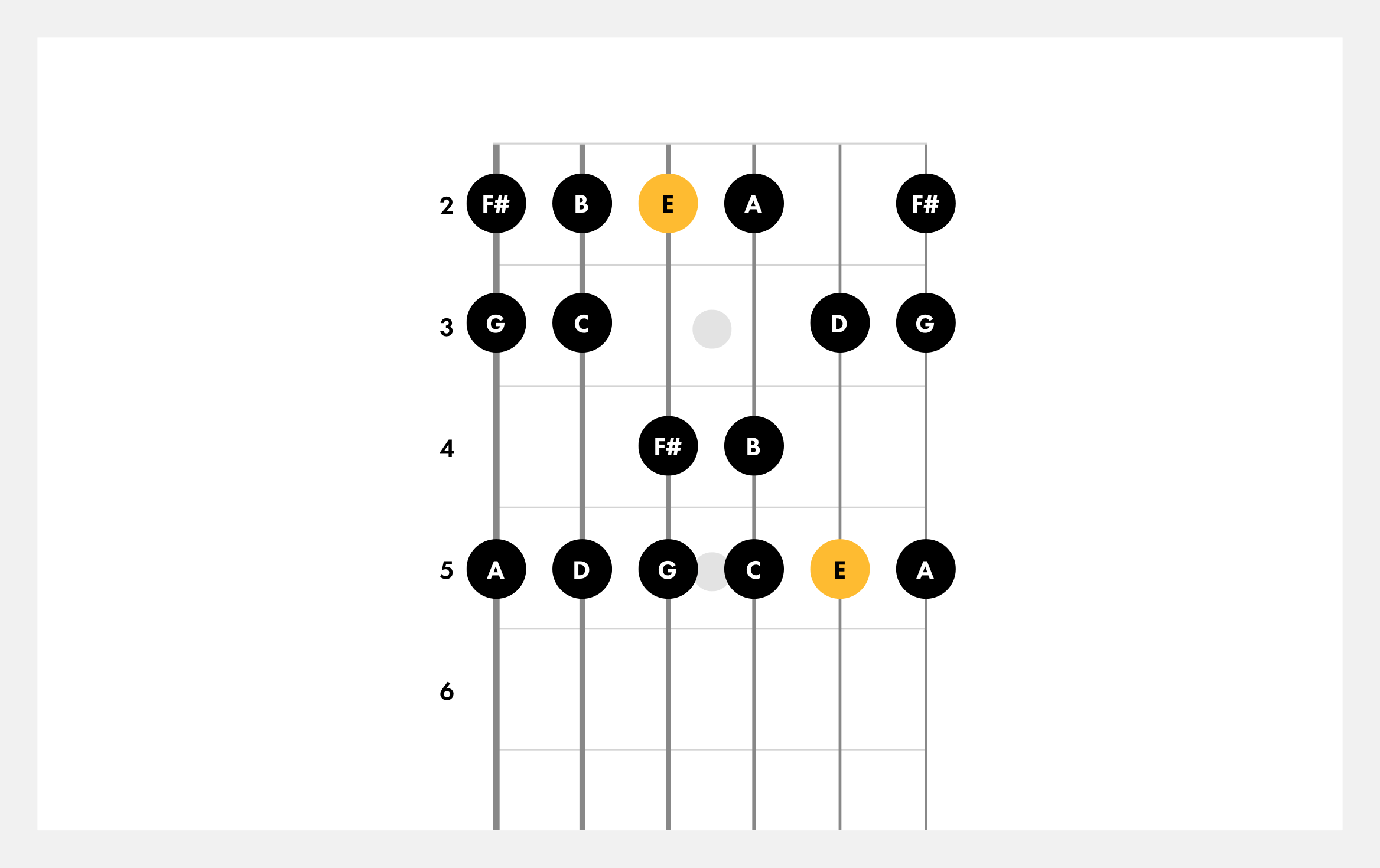


How To Play E Minor Guitar Scales Fender Play


Guthrie Govan S String Bending Masterclass Part 2 Seven Note Scale Bends Musicradar
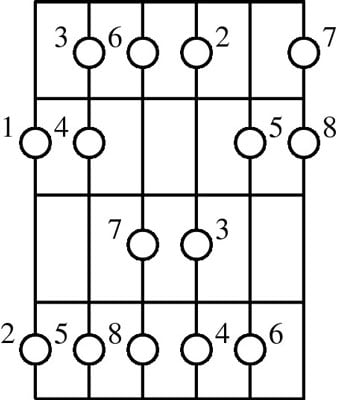


Finding The Major Scales On A Guitar Dummies


Major Scale Positions 7 Positions Of The Major Scale On Guitar



Major Pentatonic Scales Country Guitar Online



Pentatonic Blues Scale In E Up The Guitar Neck Learning Guitar Blues Scale Guitar Notes Guitar



Guitar Scales Explained Theory Diagrams And Everything You Need To Know


1



Learn The Major Scale For Left Handed Guitar Players



Whole Guitar Neck Mapped Out



Major Triads On Guitarapplied Guitar Theory



E Major Scale On The Guitar Caged Positions Tabs And Theory



E Major Scale Note Information And Scale Diagrams For Guitarists



How To Find Major And Minor Chords All Over The Guitar Deft Digits Guitar Lessons



Open Position E Major Scale For Guitar Youtube



E Major Scale Guitar Ultimate Guide Guitar Lessons Blog



E Major Scale Free Major Scales


Major Scale On Guitar Essential Theory Chord Tracks



E Major Pentatonic



E Major Scale Note Information And Scale Diagrams For Guitarists



Ab Major Scale Charts For Guitar And Bass



B Major Scale Free Major Scales
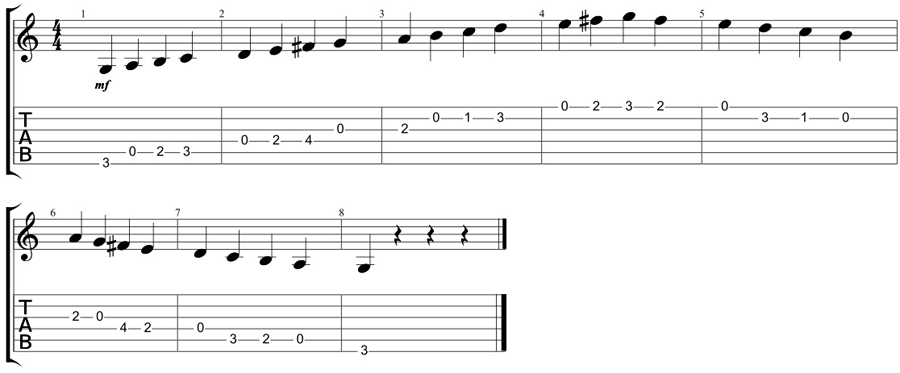


How To Play The Major Scale Guitar Guide For Beginners And Intermediate Guitarhabits
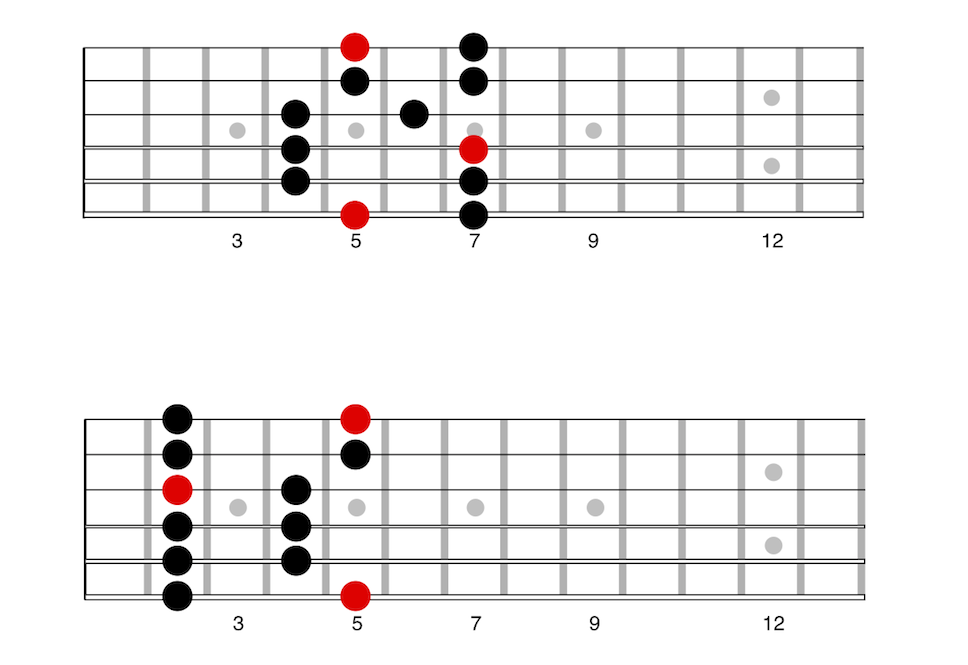


The Major Pentatonic Scale Anyone Can Play Guitar



The 5 Major Pentatonic Scale Shapes Positions Guitarhabits
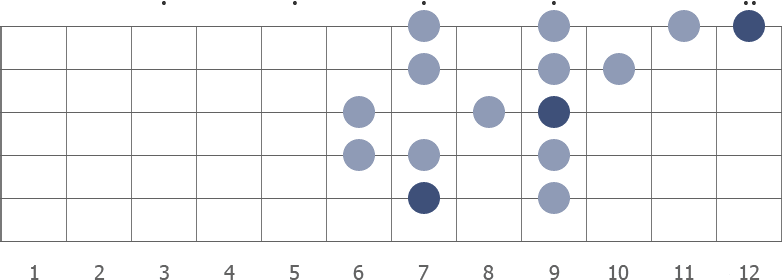


E Major Guitar Scale


Major Scale Patterns 3 Notes Per String More



E Major Scale On The Guitar Caged Positions Tabs And Theory



E Major Scale For Guitar Tab Notation Patterns Lesson Information



Play A Scale Across The Whole Neck Of The Guitar Music Practice Theory Stack Exchange


Q Tbn And9gcss J2ksklbyfta61qwvypxyi46nfmky86wesqazepr0pg66sqy Usqp Cau



D Major Scale Charts For Guitar And Bass Guitar Scales Guitar Lessons Fingerpicking Guitar Fretboard Chart
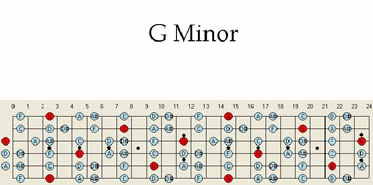


G Minor Guitar Scale Pattern Chart Patterns Scales Maps



Schematic View Guitar Neck Scale E Stock Vector Royalty Free


Q Tbn And9gcrsfcrl3anawevvryfjvmg7xrccxkuvq96t1mycirdepvetno9b Usqp Cau



The Major Blues Scale Lesson With Guitar Diagrams



Guitar Scales Wikibooks Open Books For An Open World
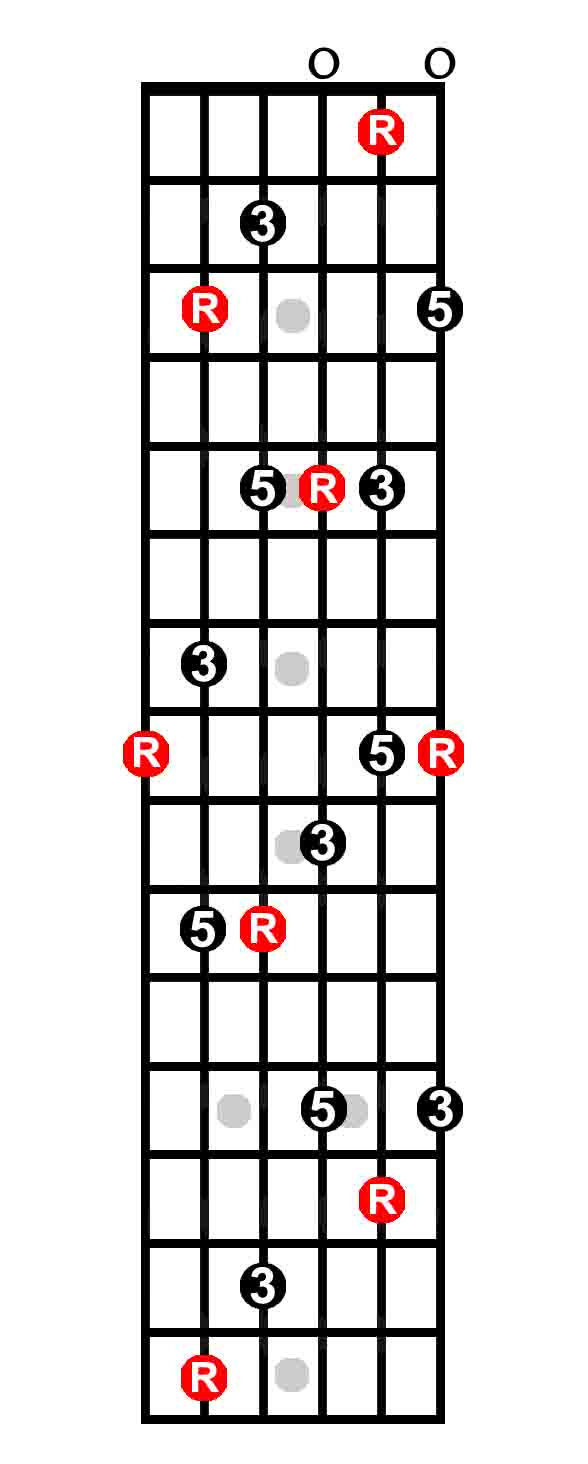


What Is The Caged System The Keys To The Fretboard Guitarhabits


コメント
コメントを投稿